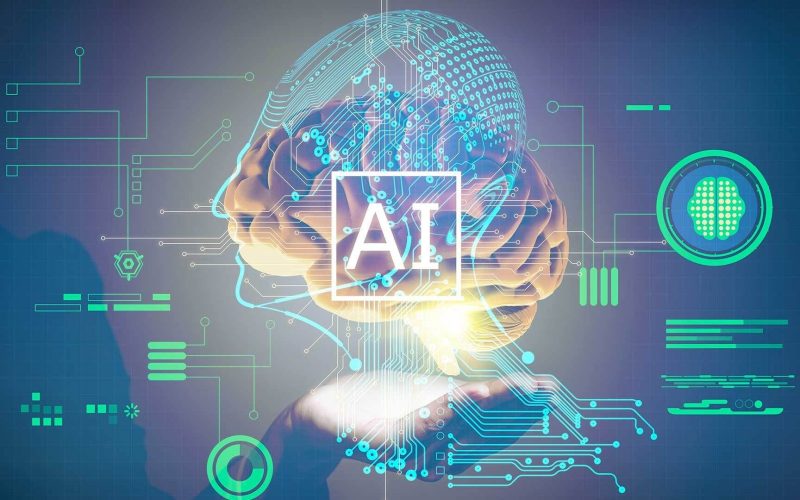How AI and Machine Learning are Revolutionizing Industries
The advent of Artificial Intelligence (AI) and Machine Learning (ML) has ushered in a new era of technological transformation across various industries. These advanced technologies are not only enhancing operational efficiencies but also driving innovation, enabling businesses to unlock unprecedented opportunities. This article delves into how AI and ML are revolutionizing industries, focusing on key sectors such as healthcare, finance, manufacturing, retail, and transportation.
Healthcare: Precision and Personalization
AI and ML are making significant strides in the healthcare industry. One of the most impactful applications is in medical diagnostics. AI algorithms can analyze medical images such as X-rays, MRIs, and CT scans with remarkable accuracy, often surpassing human capabilities. For instance, AI-powered diagnostic tools can detect early signs of diseases like cancer, enabling timely intervention and improving patient outcomes.
Personalized medicine is another area where AI and ML are making a difference. By analyzing a patient’s genetic information, lifestyle, and other health data, AI can recommend personalized treatment plans. This precision medicine approach ensures that patients receive the most effective treatments tailored to their unique needs.
Moreover, AI-driven predictive analytics are helping healthcare providers anticipate patient needs, optimize resource allocation, and reduce operational costs. For example, hospitals can use AI to predict patient admission rates and allocate staff and resources accordingly, thereby enhancing overall efficiency and patient care.
Finance: Enhancing Security and Efficiency
The finance industry is leveraging AI and ML to enhance security, improve customer experiences, and streamline operations. Fraud detection is one of the most critical applications. AI algorithms can analyze vast amounts of transaction data in real-time, identifying patterns and anomalies that may indicate fraudulent activity. This proactive approach enables financial institutions to prevent fraud before it occurs, safeguarding customer assets and maintaining trust.
In addition to security, AI and ML are transforming customer service in the finance sector. Chatbots and virtual assistants powered by AI can handle routine inquiries, provide financial advice, and assist with transactions 24/7. This not only improves customer satisfaction but also frees up human agents to focus on more complex tasks.
AI-driven investment platforms are also gaining popularity. These platforms use ML algorithms to analyze market trends, assess risks, and make investment recommendations. By leveraging AI, investors can make more informed decisions and potentially achieve better returns.
Manufacturing: Optimizing Production and Quality
In the manufacturing industry, AI and ML are driving significant improvements in production processes and product quality. Predictive maintenance is a prime example of AI’s impact. By analyzing data from sensors embedded in machinery, AI can predict when equipment is likely to fail and schedule maintenance before a breakdown occurs. This minimizes downtime, reduces maintenance costs, and extends the lifespan of machinery.
AI and ML are also enhancing quality control. Advanced image recognition algorithms can inspect products for defects with high precision, ensuring that only high-quality products reach the market. This not only reduces waste but also boosts customer satisfaction and brand reputation.
Furthermore, AI-powered supply chain optimization is helping manufacturers streamline their operations. By analyzing data from various sources, AI can forecast demand, optimize inventory levels, and improve logistics. This leads to cost savings, faster delivery times, and a more responsive supply chain.
Retail: Personalizing the Shopping Experience
The retail industry is embracing AI and ML to enhance the shopping experience and drive sales. One of the most prominent applications is personalized recommendations. By analyzing customer data, such as browsing history and purchase behavior, AI algorithms can suggest products that are likely to interest individual customers. This personalized approach not only increases sales but also improves customer satisfaction and loyalty.

AI-powered chatbots and virtual assistants are also transforming customer service in retail. These intelligent agents can handle inquiries, provide product information, and assist with purchases around the clock. This ensures that customers receive prompt and accurate assistance, enhancing their overall shopping experience.
Inventory management is another area where AI and ML are making a difference. By analyzing sales data and market trends, AI can predict demand for different products and optimize inventory levels. This reduces the risk of stockouts and overstock, leading to cost savings and improved profitability.
Transportation: Enhancing Safety and Efficiency
The transportation industry is undergoing a significant transformation, thanks to AI and ML. Autonomous vehicles are perhaps the most high-profile application. Self-driving cars and trucks equipped with AI systems can navigate roads, avoid obstacles, and make real-time decisions, potentially reducing accidents and improving traffic flow.
AI is also enhancing fleet management. By analyzing data from GPS, sensors, and other sources, AI can optimize routes, monitor vehicle performance, and predict maintenance needs. This leads to more efficient operations, reduced fuel consumption, and lower maintenance costs.
In public transportation, AI is improving service reliability and passenger experience. For instance, AI-powered predictive analytics can forecast demand for different routes and adjust schedules accordingly. This ensures that buses and trains run on time and can accommodate passenger volumes, enhancing overall service quality.
Conclusion
AI and ML are revolutionizing industries by enhancing efficiency, driving innovation, and creating new opportunities. In healthcare, these technologies are enabling precision diagnostics and personalized treatments. In finance, they are enhancing security and streamlining customer service. In manufacturing, they are optimizing production and quality control. In retail, they are personalizing the shopping experience and improving inventory management. And in transportation, they are enhancing safety and efficiency.
As AI and ML continue to evolve, their impact on industries will only grow. Businesses that embrace these technologies will be better positioned to thrive in an increasingly competitive and dynamic landscape. The future of AI and ML is bright, and their potential to transform industries is limitless.










